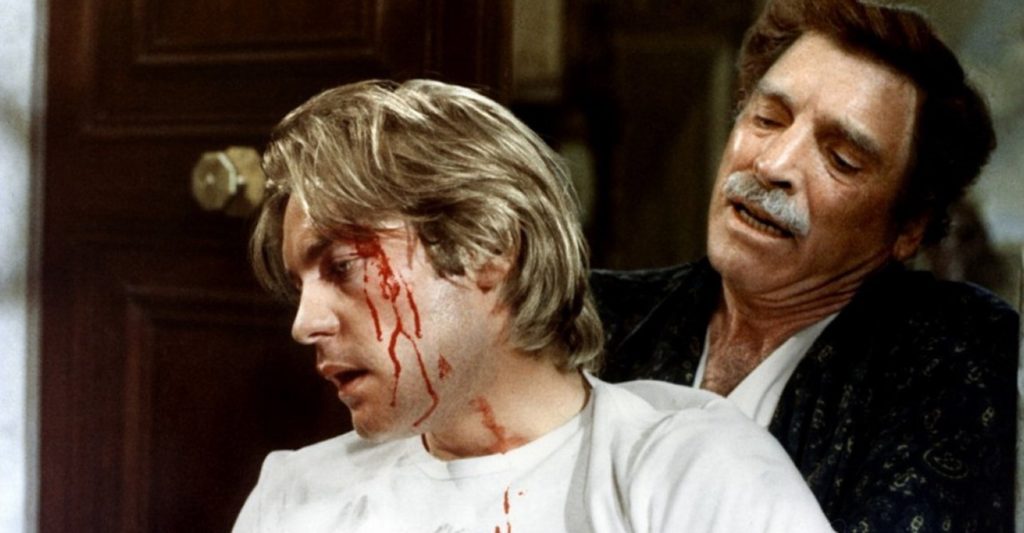
Born to the Italian nobility in 1906, Visconti would be given the highest form of education as well as a wealth of experiences before directing his first feature Obsession in 1943. Visconti is best remembered for his historical epics and his contributions to the Italian Neo-Realist movement of the forties and fifties. However, his most personal and private project would be his second to last feature Conversation Piece (1974).
Conversation Piece follows the relationship a retired Professor (Burt Lancaster) has with a group of young student activists (Helmut Berger, Claudia Marsani). The Professor belongs to the aristocracy, living in luxury with an education superior to those around him. Though he is well educated, he is unable to understand the student activists who have pushed themselves into his life. Perhaps this is due to his participation in over throwing Mussolini during WWII, perhaps not. Visconti avoids any clear answer to this problem. Instead, he makes various suggestions, so that the audience has the tools to draw their own conclusions. What is important in the film is the fascination both parties have with one another. Neither can comprehend the other’s perspective, so a relationship slowly grows out of the inquiries and assumptions the characters make about one another. Gary Fishgall has written that Visconti and Lancaster saw the project as a means to articulate the confusion or misunderstandings their generation had about the baby boomers in the Lancaster biography Against Type. If this is the case, Lancaster is again standing in for Visconti as he did in The Leopard (1963). Using Lancaster again in this manner supports another concept Fishgall proposes in Against Type. That Lancaster and Visconti saw in one another’s talents what each truly wished they themselves could do, in this case, directing and acting.
Visconti personalizes the Professor further than just casting Lancaster as his counterpart once more. In the film, Konrad (Helmut Berger) levels charges against the professor of being a homosexual. In the film, the Professor denies that there is any truth to these allegations. Yet, Visconti continually arranges Lancaster and Berger in homoerotic shot compositions (Berger was Visconti’s lover at the time). The paradox here is that the Professor, in old age, responds with homophobia while Visconti himself grew more and more open about his own homosexuality.
What is striking about Conversation Piece is that, unlike The Leopard, it is not a period drama. This makes it all the more urgent and obviously relevant to audiences at the time. Here Visconti is presenting the clearest portrait of himself, un-enamored with literary significance of historic setting.
